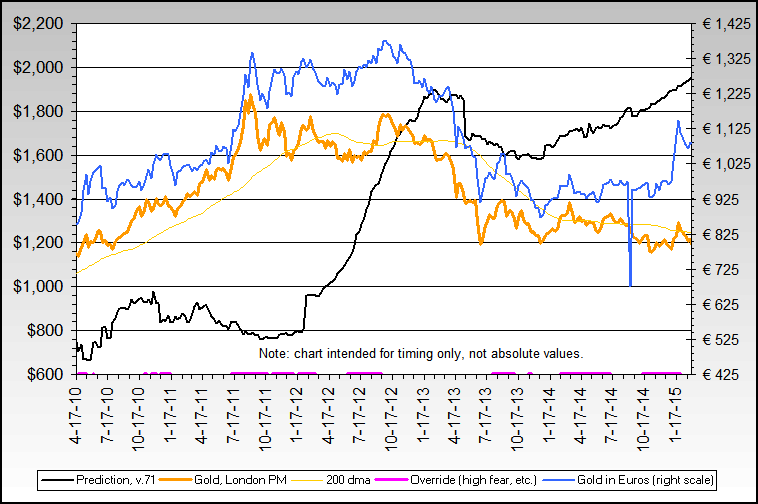Re: Get a safe, hold cash, and wait for the buying opportunity.
Lukester,
I have not been impressed with Prof. Antal Fekete; other arguments I've seen him put forward were not either useful nor terribly coherent.
The gold hedge criticisms fall into the same category.
While I do agree with A.F.'s arguments that the gold hedges have been hurting maximum theoretical profitability in the gold mining companies - this is a problem only if the purpose of the hedging was to be for maximizing corporate profitability and failed to do so.
If instead the purpose was to offload certain forms of risk: i.e. capital cost of opening new mines or short term cash flow, then there is nothing wrong with having done so.
The hedges of course can also be used to offload risk for gold mining company management - in the form of options incentives or whatever. This would be a 'bad' reason for using them.
If the risk is that maximum profitability for the gold mining company is reduced, that itself is not necessarily relevant. Lots of people forgo maximum theoretical profitability for short term gain. Its like winning the lottery - take half the money now or all of it over 20 years.
Whatever you might say about Mish - his point about the mining companies not physically losing money even with 'bad' hedges is the key point.
If the mining company has a mine which will produce gold for $200, and sells hedges for $300, they will still make $100. If the price of gold is $700, that's unfortunate but the decision that was made was to 'lock in' the $100 profit and also get the cash up front from the hedge.
I don't see what is so necessarily nefarious about this.
It is no different than Steve Job's trading in his piles of options for stock; had he kept the options he would be billions richer, but as it is he still got a ton of money.
Perhaps I'm just stupid, but this seems another case of Prof. Fekete just not having a clue about the real world.
Lukester,
I have not been impressed with Prof. Antal Fekete; other arguments I've seen him put forward were not either useful nor terribly coherent.
The gold hedge criticisms fall into the same category.
While I do agree with A.F.'s arguments that the gold hedges have been hurting maximum theoretical profitability in the gold mining companies - this is a problem only if the purpose of the hedging was to be for maximizing corporate profitability and failed to do so.
If instead the purpose was to offload certain forms of risk: i.e. capital cost of opening new mines or short term cash flow, then there is nothing wrong with having done so.
The hedges of course can also be used to offload risk for gold mining company management - in the form of options incentives or whatever. This would be a 'bad' reason for using them.
If the risk is that maximum profitability for the gold mining company is reduced, that itself is not necessarily relevant. Lots of people forgo maximum theoretical profitability for short term gain. Its like winning the lottery - take half the money now or all of it over 20 years.
Whatever you might say about Mish - his point about the mining companies not physically losing money even with 'bad' hedges is the key point.
If the mining company has a mine which will produce gold for $200, and sells hedges for $300, they will still make $100. If the price of gold is $700, that's unfortunate but the decision that was made was to 'lock in' the $100 profit and also get the cash up front from the hedge.
I don't see what is so necessarily nefarious about this.
It is no different than Steve Job's trading in his piles of options for stock; had he kept the options he would be billions richer, but as it is he still got a ton of money.
Perhaps I'm just stupid, but this seems another case of Prof. Fekete just not having a clue about the real world.




Comment